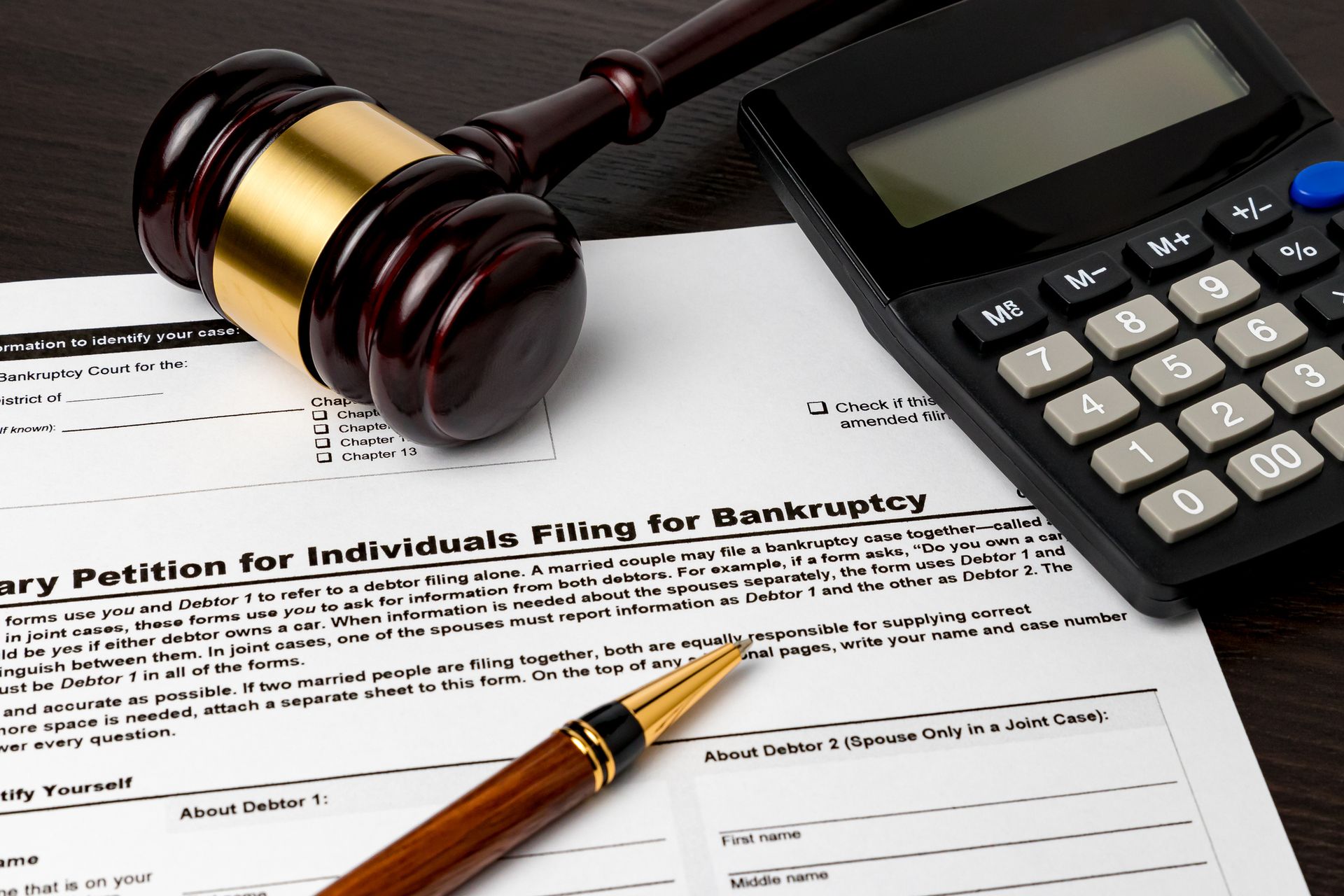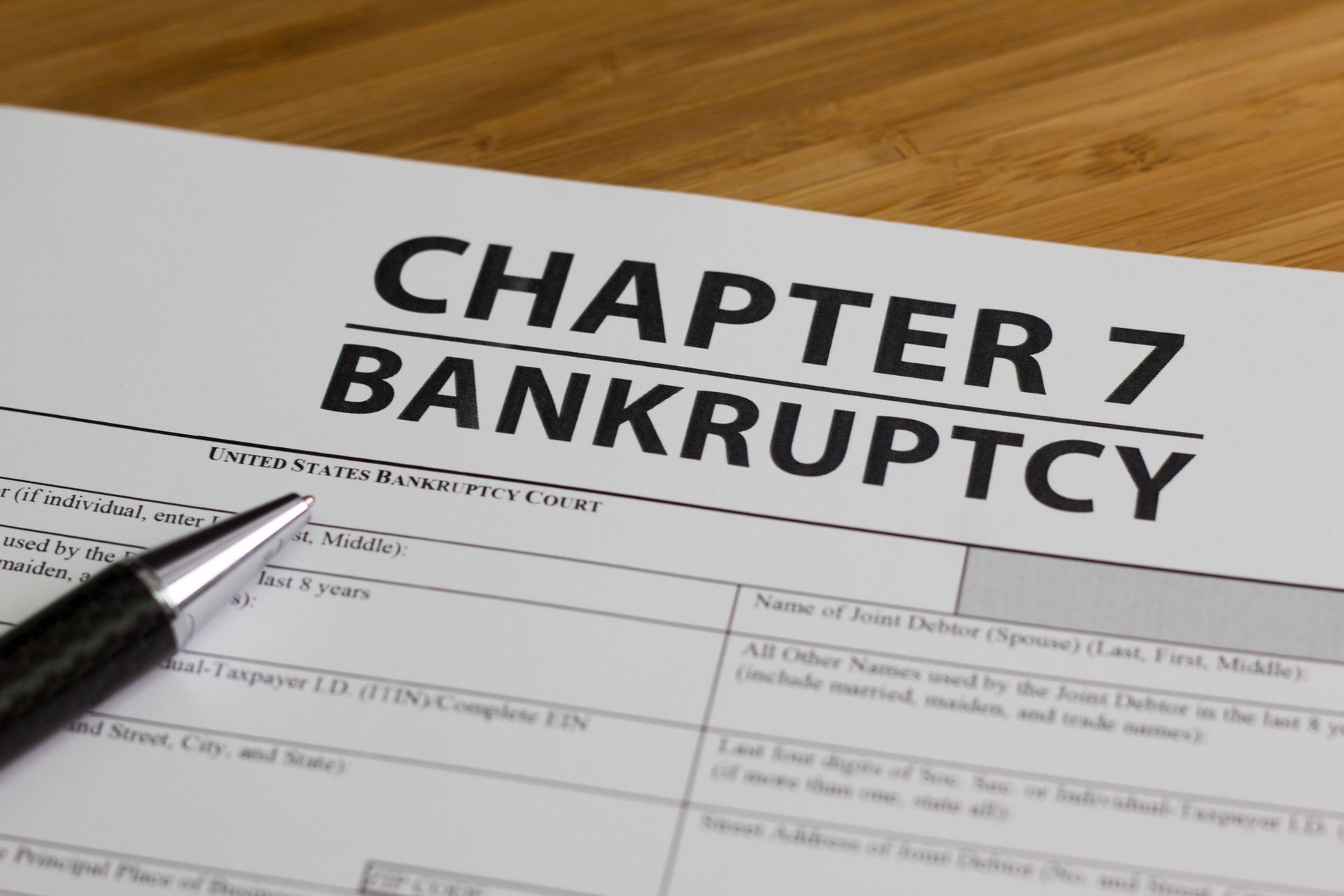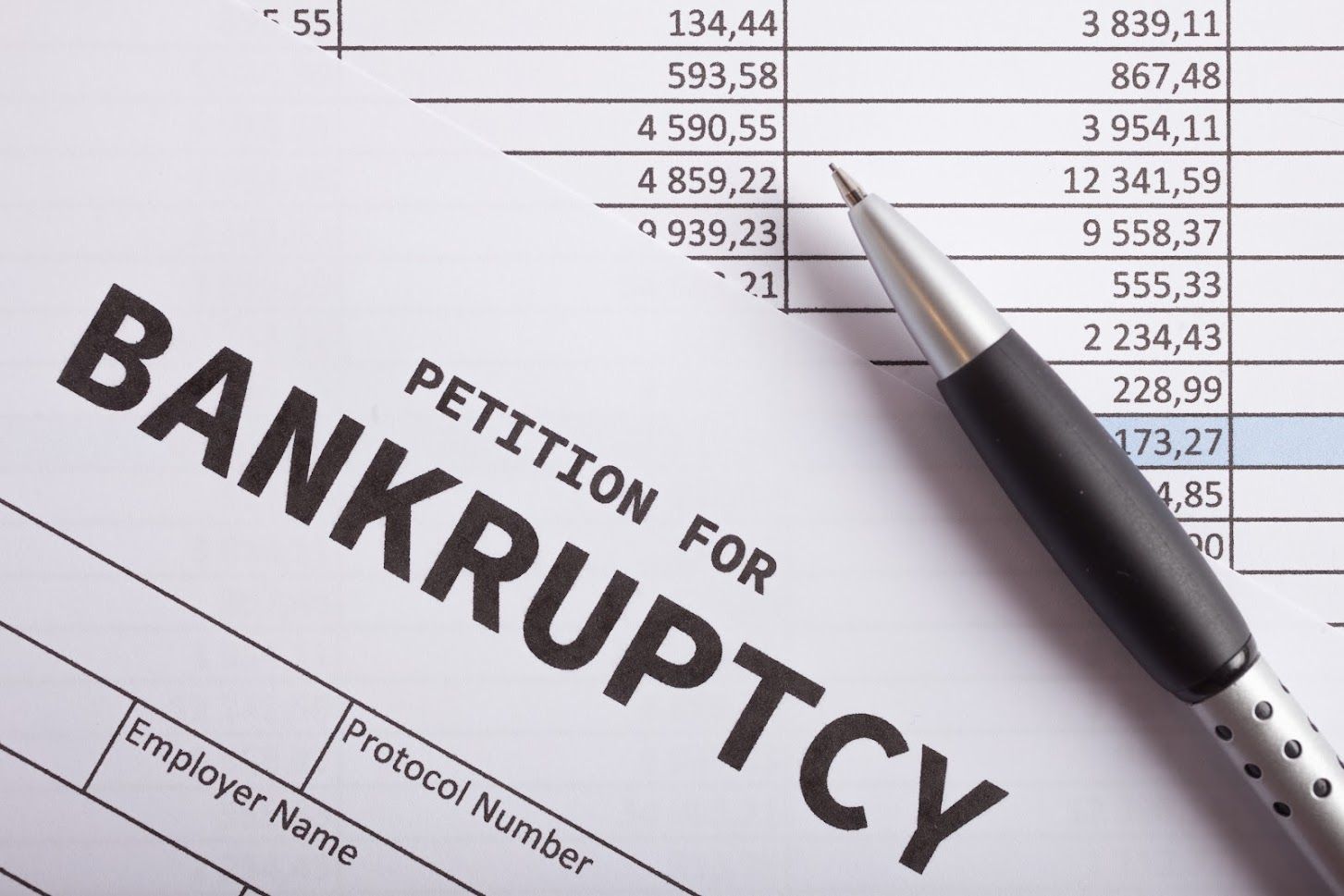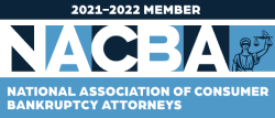Find the Path to Financial Relief With Chapter 7 Bankruptcy

Bankruptcy can be a crucial life change for individuals and families who feel overwhelmed by debt and see no clear way forward. At McManus and Associates, our goal is to empower people in the Indianapolis, IN, area with information and guidance so they can understand their options and pursue a fresh financial start. This article digs deep into the essentials of Chapter 7 bankruptcy, explaining who qualifies, what income limits and exemptions apply, and the common reasons why applications for Chapter 7 bankruptcy serving Indianapolis, IN, may falter.
Understanding Who Qualifies for Chapter 7 Bankruptcy
Qualifying for Chapter 7 bankruptcy is not automatic for everyone in Indianapolis, IN. The process fundamentally centers on financial need and is regulated by the federal bankruptcy code to ensure only those truly overwhelmed by debt access this pathway.
- People who have significant unsecured debts, such as medical bills, credit card debt, or personal loans, often look to Chapter 7 as a viable solution.
- The bankruptcy “means test” is a central factor in determining eligibility. This test examines your household income and compares it to the median income for similar-sized households in Indiana.
- If your income falls below the state median, you typically qualify for Chapter 7 bankruptcy. If your income is above, further analysis is required.
Households in Indianapolis, IN, dealing with loss of income, unemployment, high medical costs, or divorce commonly see themselves as candidates for Chapter 7 bankruptcy. The process can provide relief from creditor harassment and the stress associated with mounting bills.
Income Limits: What You Need to Know in Indianapolis, IN
Income limits play an essential role in Chapter 7 bankruptcy eligibility. Understanding these limits gives you clarity on whether you are likely to qualify.
- The “means test” requires you to calculate your average income over the past six months.
- If your household income is below the Indiana median, you pass this portion of the Chapter 7 test.
- The median household income in Indiana changes periodically, so it is important to check the latest numbers before proceeding.
- If your income exceeds the median, you must analyze your disposable income after subtracting allowable expenses such as food, rent, utilities, and childcare. Sometimes, even with an above-median income, high living expenses can still make you eligible for Chapter 7 bankruptcy.
Navigating these calculations can be confusing, especially for Indianapolis, IN, families with variable incomes. Households with fluctuating earnings, part-time jobs, or self-employment often face unique challenges in presenting accurate numbers for the means test.
Common Exemptions Available in Chapter 7 Bankruptcy
One of the most pressing questions for potential filers is whether they have to surrender everything they own to creditors. The good news is that Chapter 7 bankruptcy is designed to give you a fresh start, not strip you of every asset.
Common exemptions allowed under Indiana law for Chapter 7 include:
- Homestead Exemption: Protects a certain amount of equity in your personal residence.
- Vehicle Exemption: Safeguards a set portion of value in your car.
- Personal Property Exemption: Includes household goods, furniture, clothing, and certain retirement accounts.
- Client Tools of the Trade: Enables Indianapolis, IN, workers to keep equipment necessary for earning a living.
- Miscellaneous Exemptions: Life insurance, health aids, and benefits such as Social Security may also be protected.
These exemptions mean you may be able to retain your home, vehicle, and essential personal items even after completing Chapter 7 bankruptcy. Understanding which assets are shielded, however, requires careful attention to Indiana’s exemption rules.
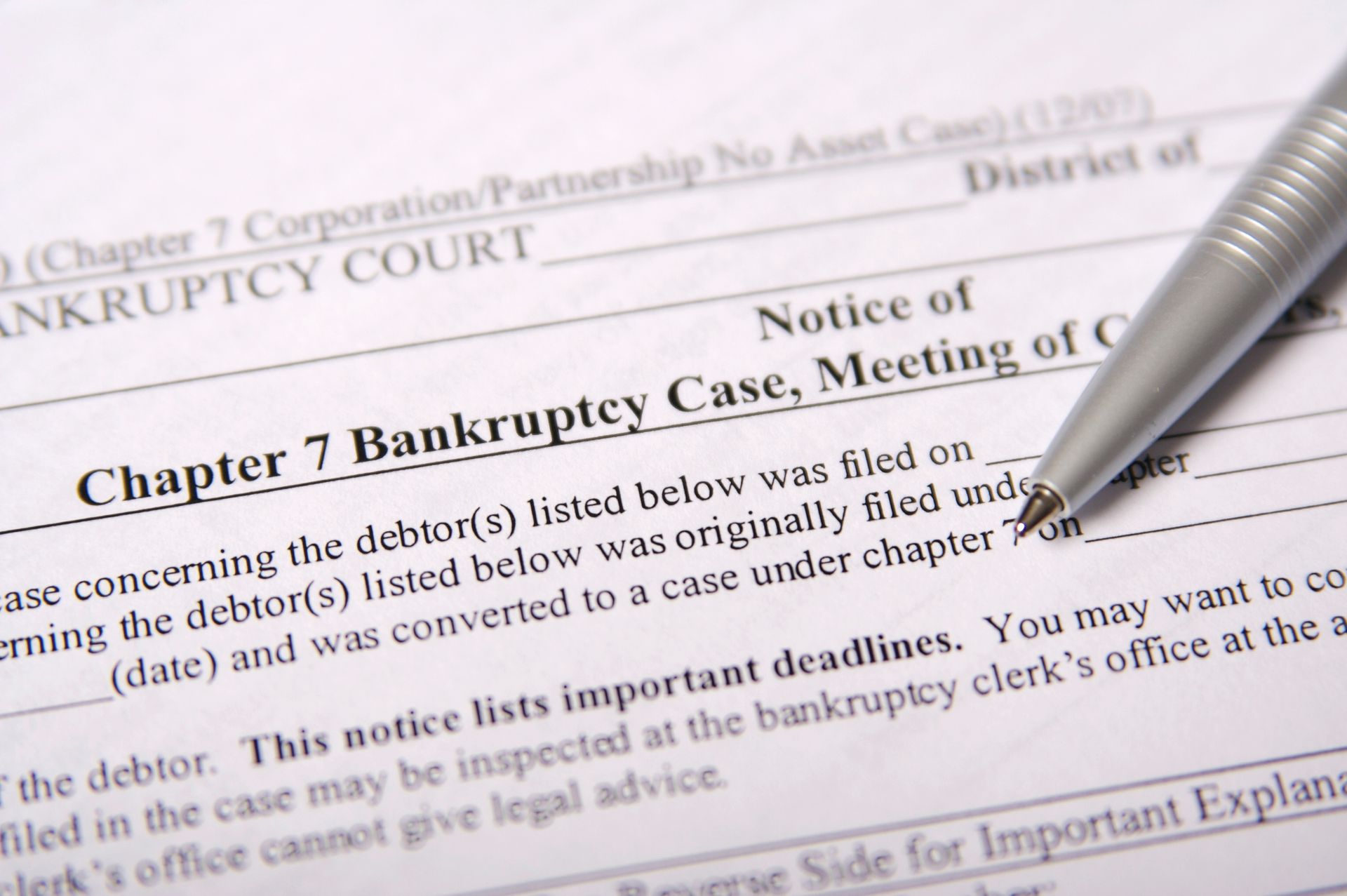
Why People Fail the Chapter 7 Bankruptcy Means Test
Not everyone who applies for Chapter 7 gets approved. It’s important to know the reasons applications fail so you can avoid common mistakes.
Some reasons include:
- Inaccurate or incomplete income reporting. If you underreport earnings, your application may be rejected or delayed.
- Errors in claiming expenses. If certain expenses are not allowable or supported with documentation, they can be disqualified.
- Recent large purchases or asset transfers. These can raise red flags if not handled correctly before filing for Chapter 7 bankruptcy.
- Previous bankruptcy filings. If you have recently filed for bankruptcy, you may need to wait a certain period before applying for Chapter 7 bankruptcy again.
With careful preparation and accurate documentation, many of these pitfalls can be avoided. People in Indianapolis, IN, should gather pay stubs, tax returns, and bills in advance to streamline their bankruptcy process.
The Benefits of Pursuing Chapter 7 Bankruptcy in Indianapolis, IN
Individuals who find themselves in distress about debt often report a sense of relief after exploring Chapter 7 bankruptcy and debt negotiation. While each case is unique, some common benefits include:
- Immediate cessation of creditor harassment and collection calls.
- Discharge of unsecured debts such as credit cards, medical bills, and some loans.
- Ability to start building credit from scratch after clearing away unmanageable obligations.
- Retention of essential assets through Indiana’s exemption laws.
By addressing debt proactively, Indianapolis, IN, families can focus on regaining financial stability and planning for the future after Chapter 7 bankruptcy.
Steps to Begin Your Chapter 7 Bankruptcy Journey
If you believe Chapter 7 might be the right option for you, it helps to understand the process.
Here’s a simple breakdown:
1. Education: research and gather information on bankruptcy rules and benefits in Indianapolis, IN.
2. Evaluation: use the means test to calculate income and see if you qualify.
3. Preparation: collect financial records, bills, pay stubs, and property inventory.
4. Counseling: complete a mandatory credit counseling session with an approved Indiana provider.
5. Filing: submit your Chapter 7 bankruptcy petition in federal court.
6. Resolution: attend a trustee meeting, answer questions, and await discharge.
Making the Most of Bankruptcy With McManus and Associates
McManus and Associates is committed to supporting clients with the resources needed to explore Chapter 7 bankruptcy confidently. We are passionate about informing, educating, and guiding residents through each step, offering reliable help in the face of uncertainty.
Our team understands that financial difficulties are stressful and complicated. Whether you have questions about exemptions, qualifying, or navigating the means test, McManus and Associates stands ready to provide the clarity Indianapolis, IN, families need.
Take Control of Your Financial Future Today!
Facing challenges with debt is never easy, but the right help makes all the difference. Chapter 7 bankruptcy for Indianapolis, IN, presents the opportunity for a fresh start for many people. If you’re ready to explore your options and regain control of your finances, reach out for a personal consultation. Call us at
(317) 841-0315 to begin your journey toward a new financial future with Chapter 7 bankruptcy, guided by McManus and Associates!



